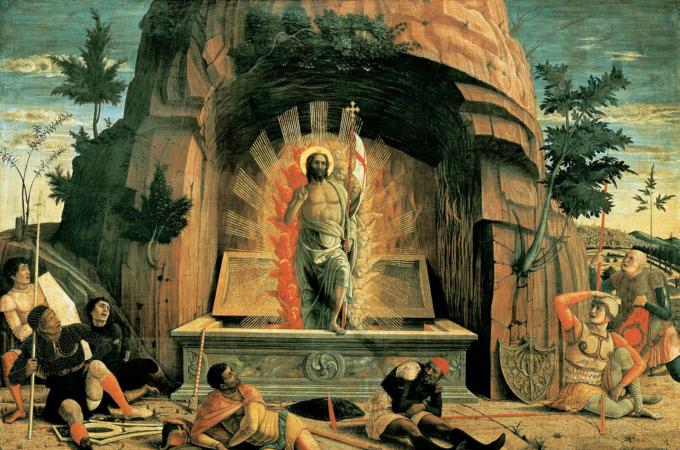Cardinal Cushing's 1962 Easter sermon
The archive is home to the Cardinal Cushing Papers which contain several hundred sermons and speeches delivered by the late cardinal. Within are several Easter sermons, most of which discuss Jesus' sacrifice, resurrection, and how we should strive to emulate the examples he gave us. Among them is a sermon from Easter 1962, in which Cardinal Cushing chose to speak about the importance of loving on another, and sharing each other's burdens, as Jesus exemplified.
Cardinal Cushing gives two examples of Jesus' sacrifice, first by putting aside "His heavenly crown" for a "servant's apron," and by doing so sacrificing his divinity. Second, by his crucifixion, sacrificing his life on Earth. In both instances, it was done for the benefit of all mankind -- but "how far can we poor creatures go in imitation of it?" Cardinal Cushing asks.
He reveals the answer, indicating that "all this was accomplished by love, love of God and love of man. Christ did it because he himself wanted it. We can want it too!"
We can show our love for man through the spiritual and corporal works of mercy, which he holds up as "the purest example of Christ-like conduct," and "practically the only way by which people can tangibly observe the true image of Christ." Through the works of mercy, we take the burden of others upon ourselves which, if we are sincere, will be weightless.
But, Cardinal Cushing states, do not forget that we must also have "love for God, it means also that we must bear God's burdens too, as he so generously bears ours." He alludes to Simon the Cyrenian helping Jesus carry his cross, or Jesus helping the fishermen haul their nets which he has filled.
It is important that we not forget small acts of kindness, which may seem insignificant, but remember that "the flame of a small taper is quite as much true fire as that of the great Easter Candle from which it is taken."
Finally, he discusses the tomb where Jesus was buried, and his followers returning to find the door open. Cardinal Cushing explains that "He has made the empty tomb the everlasting symbol of the open door to His mercies." There is no problem or burden that the Lord will not willingly share, all we must do is enter the tomb, and accept him.
"On Easter Sunday above all other days, it seems that these considerations must be foremost in our thoughts... The resurrection is the very climax of divine love in our regard. It contains in itself all of Christ's generous efforts to bear burdens that were not his own."
Wishing our readers and their loved ones a blessed Easter season.
THOMAS LESTER IS THE ARCHIVIST OF THE ARCHDIOCESE OF BOSTON.



















